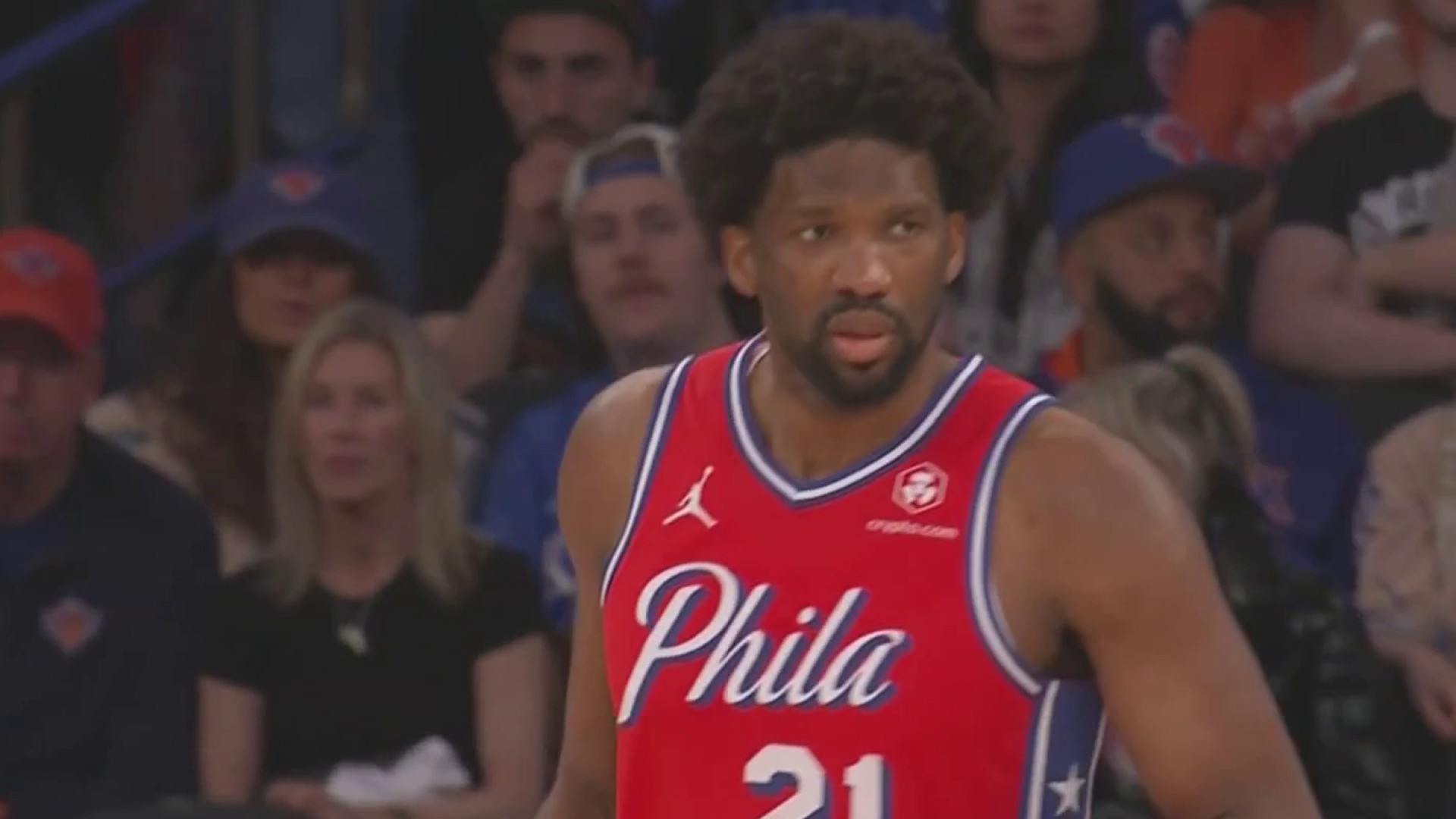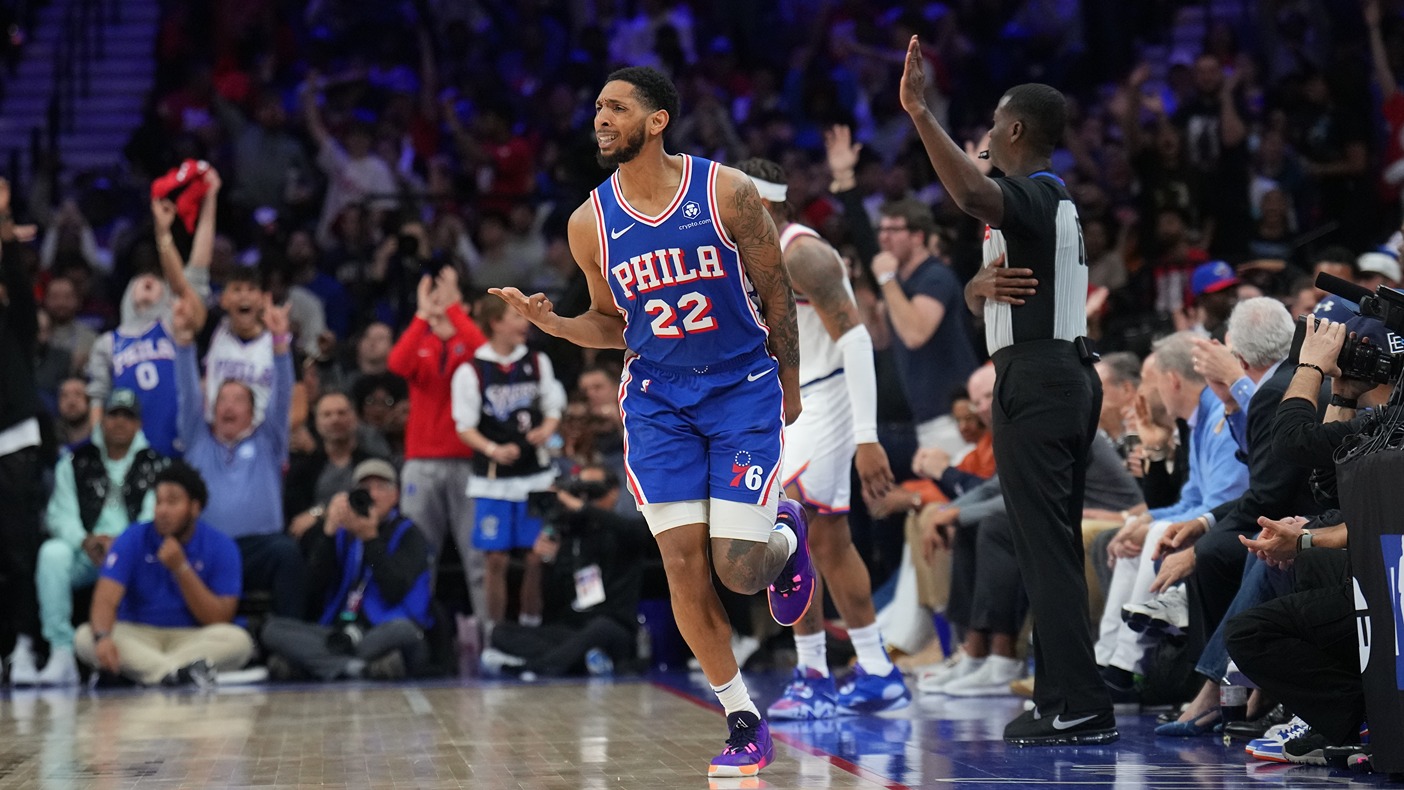On Tuesday, Sixers center Joel Embiid finalized his five-year contract extension worth $148 million. The sum could rise to $178 million if certain incentives are met in the 2017-18 season.
It's official. The ink is dry. No takebacks.
As no shortage of folks have already observed, this was simultaneously a great day and a scary day in Sixers history. The new contract essentially cements Embiid as the face of the franchise, which is a hopeful sign for the future. And while not all the details were concrete at the time of this writing, we are told the deal provides the organization significant financial protection against injury -- crucial with a player who's dressed for all of 31 games over three NBA seasons. Yet, still, it's difficult not to feel some trepidation about an expensive, long-term deal for any athlete given the track record of such moves in the Philly sports scene.
Ryan Howard immediately comes to mind, with a contract similar in length and money that the Phillies only finally got out from under last year. Ilya Bryzgalov is another, and though the Flyers were allowed to escape Bryz and any salary-cap implications via an NHL-granted one-time buyout, the club will be paying the squirrely netminder literally until 2027. Let's not forget how quickly Nnamdi Asomugha went from being one of the biggest free-agent signings in Eagles and NFL history to one of the biggest-free agent busts ever.
Just look at the last time the Sixers committed big bucks to anybody for any length of time. Almost a decade ago, the 2008 offseason saw the organization pay Elton Brand $82 million over five years in free agency, not to mention a six-year extension worth $80 million for Andre Iguodala.
Brand was 29 at the time, but looked much older. Iguodala was fine, but not a superstar-caliber player, which that money represented at the time. (These deals look like chump change now, but both were close to top dollar in '08). Those contracts quickly became a burden for the Sixers -- moves that helped lead them down the road toward The Process in the first place.
A deal like Embiid's can and often does have lasting repercussions if it goes awry. However, not every long-term contract is destined to become an albatross.
Philadelphia 76ers
Complete coverage of the Philadelphia 76ers and their rivals in the NBA from NBC Sports Philadelphia.
Every once in awhile, there is a transcedent talent who is totally worth the risk. For example, there's no way the Eagles ever regretted giving Donovan McNabb a 12-year, $115 million contract in 2002. McNabb was in the midst of a run of four straight NFC Championship appearances and a trip to the Super Bowl, and though he was slowed by injuries and natural decline in his later years, he was still good enough to guide the team to the playoffs on a nearly annual basis. Sure, McNabb's tenure didn't end with a parade down Broad Street, but his presence provided stability for the better part of a decade.
Even when a player runs his course with a team before a deal expires, as tends to happen for various reasons, most contracts can be traded. That's ultimately what happened to McNabb. The Phillies were never able to move Howard, but Jimmy Rollins, Chase Utley and Cole Hamels all got dealt. In some ways, the Hamels trade was reminscent of when the Flyers suddenly shipped out Jeff Carter and Mike Richards early, in that they were early in their recently signed long-term deals. And just last year, the Eagles were able to move some pricey contracts, namely that of Byron Maxwell.
A massive contract isn't necessarily a death sentence if it doesn't work out perfectly or for the entire duration. Michael Vick. Jim Thome. Vinny Lecavalier. Chris Pronger. Their contracts were impediments, but only temporarily, until other arrangements could be made.
Depending on what the injury clause covers and the extent of the money that can be recouped -- rumor is around 50 percent -- the Sixers may not even feel much or any short-term pain if Embiid isn't working out a few years from now. And this is also what makes this situation so unique. While NBA contracts are tradtionally guaranteed, like those in the NHL and MLB, it sounds like this one is structured closer to that of an NFL deal, with plenty of outs for the franchise at nominal fees. It's well worth the risk for a player with Embiid's tremendous upside.
But as we've seen far too often, players signing these types of massive deals in Philly rarely equates to sustained success for long periods of time. On occasion, there's no success at all. Embiid certainly has a lot to prove to be the rare talent who avoids winding up in either category. Yet, even if he doesn't live up to his contract -- and it will be a tall task -- it's structured in such a way that it's not likely to set the Sixers back for years to come.
After all, it's only money.



